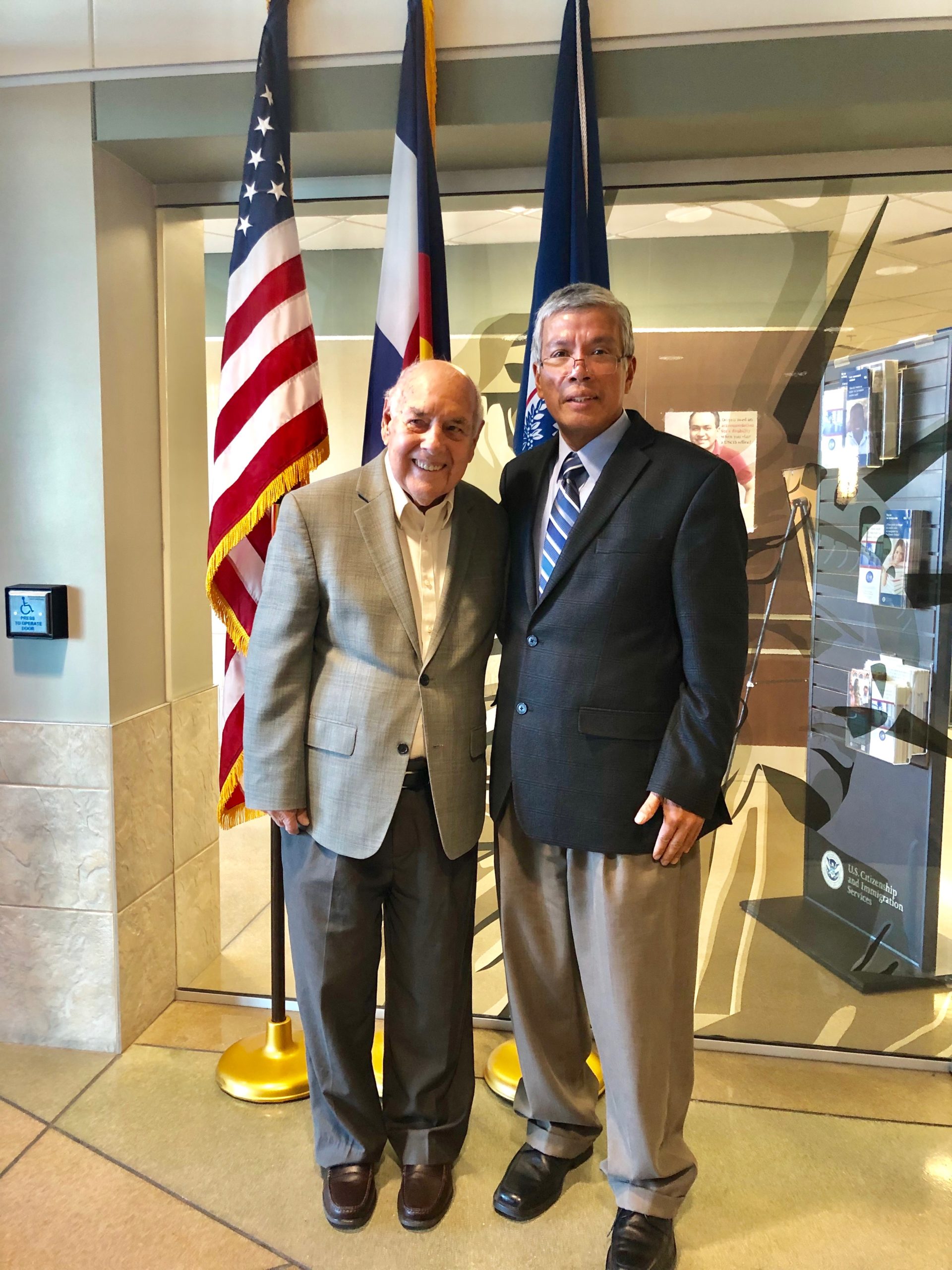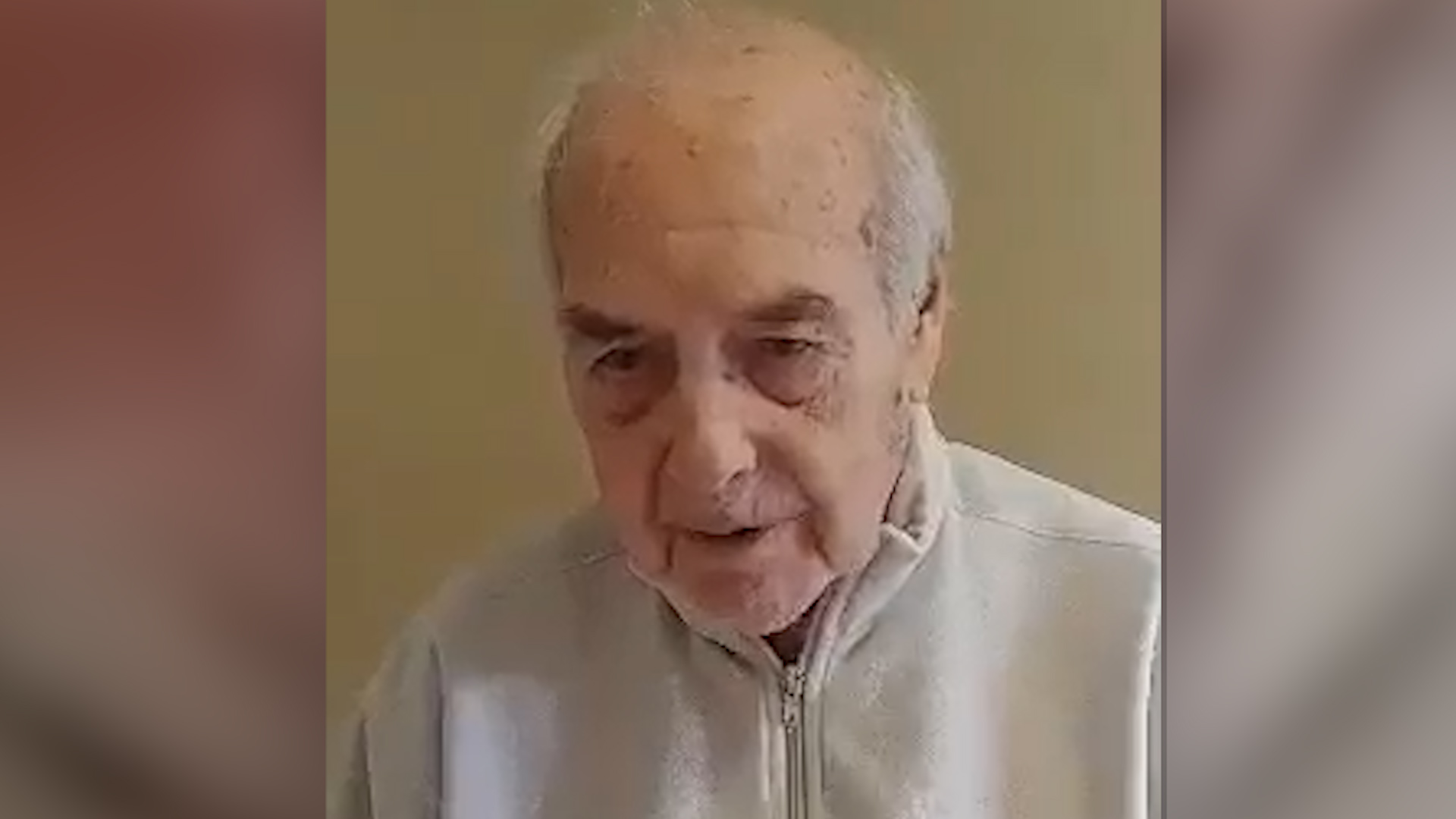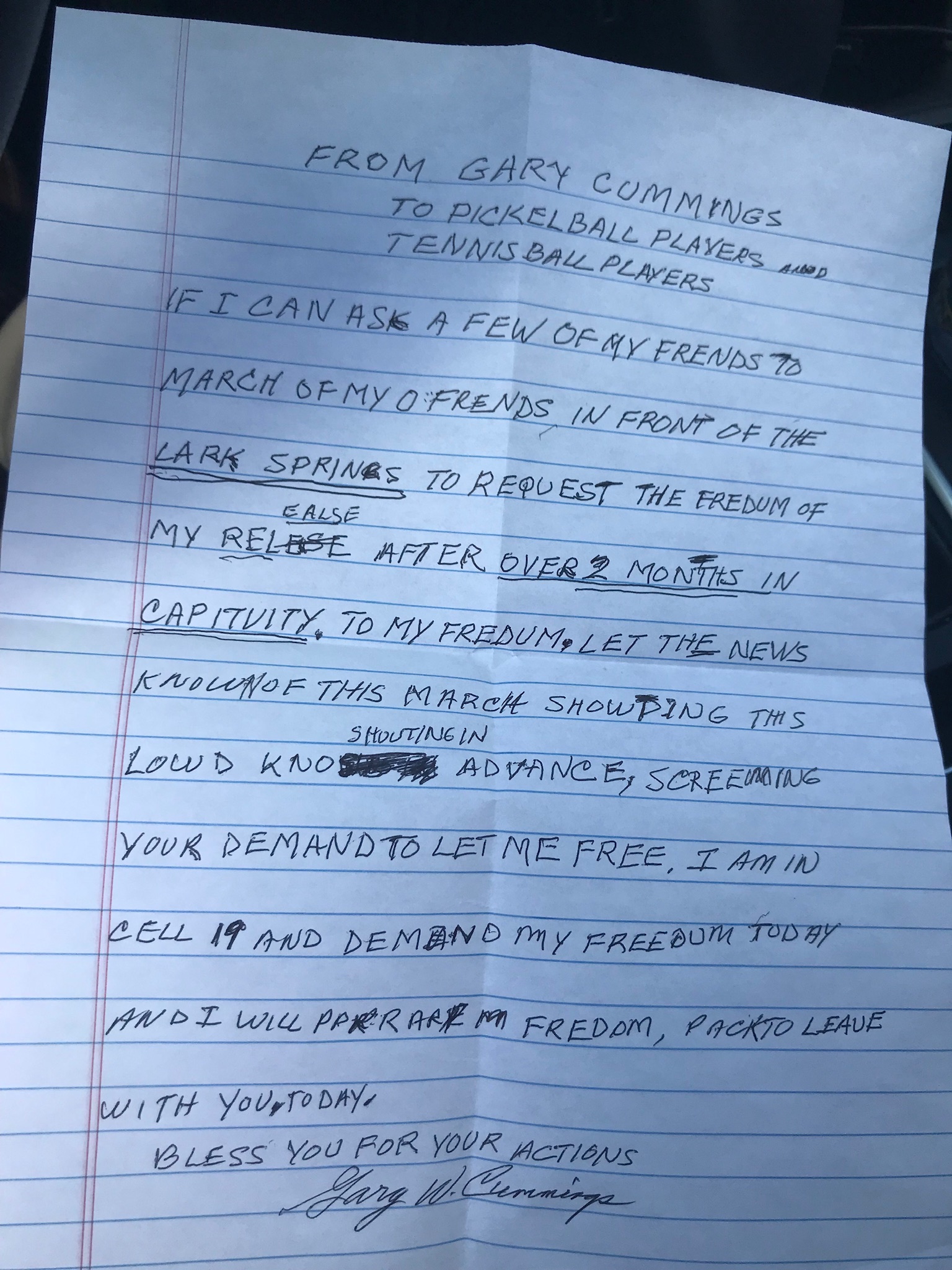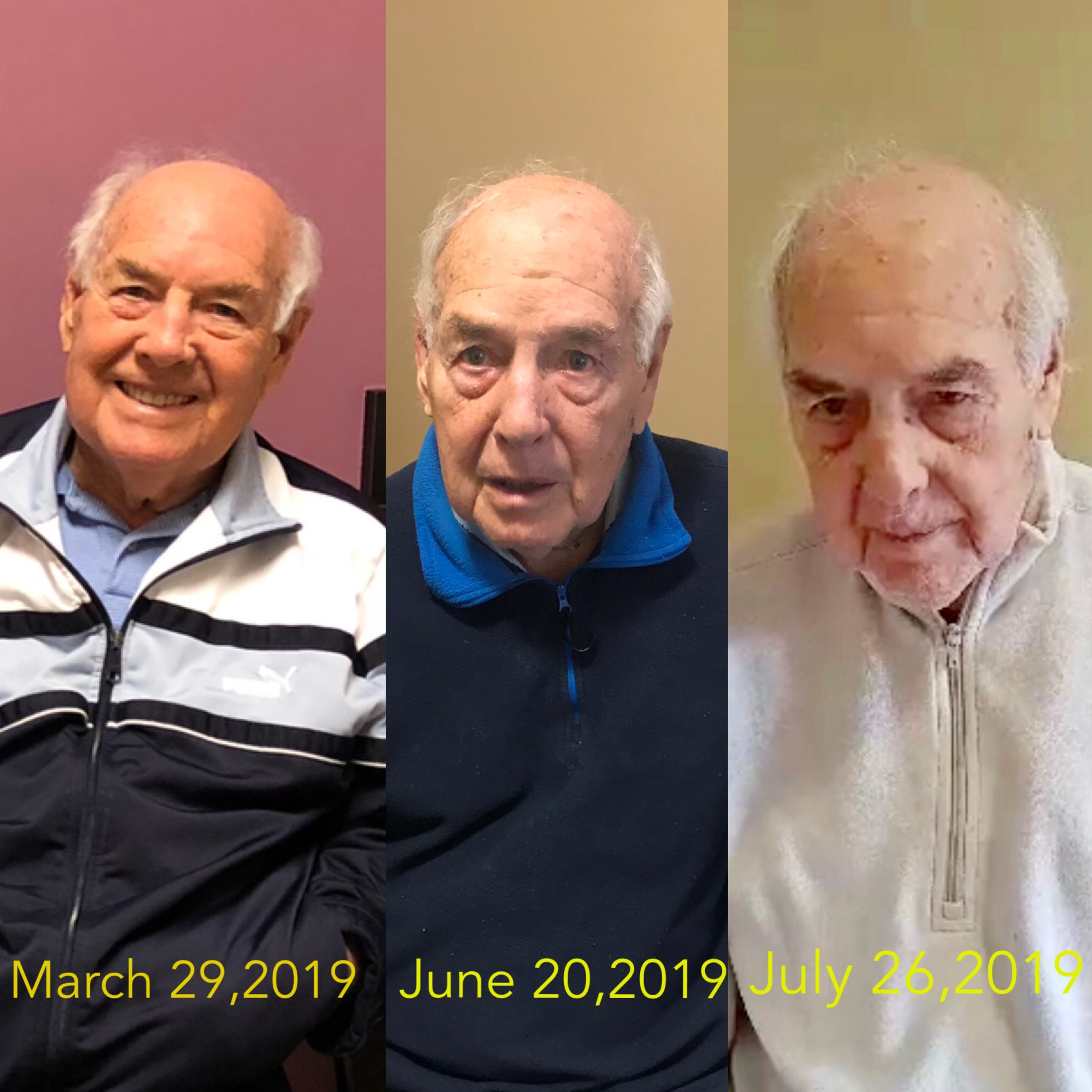Children with developmental disabilities were held under brutal
conditions at a notorious New York facility. Decades later, they still
face abuse and neglect.
By Benjamin Weiser
[Watch a Times investigation of abuse at state-run group homes on “The Weekly,” on FX and Hulu.]
When the abuse began, Migdalia could not call for help.
She
was 57 but with the mind of a child. She had never spoken and could not
form words. She lived in a Bronx group home with two dozen other adults
who also were mostly nonverbal and helpless.
Bruises started appearing on her arms and legs. What looked like a shoe print on her belly.
A
state investigation later concluded that she and other residents had
been beaten by some of the home’s employees, the people who had been
entrusted with her care. In Migdalia’s case, the abuse represented an
especially deep betrayal.
Migdalia and
thousands like her had grown up in the Willowbrook State School, a
notorious institution on Staten Island. For decades, the state used the
facility as a warehouse for children and adults with developmental
disabilities. They were left unattended, naked or in rags. Some were
strapped in beds or chairs; others were left to rock endlessly on
filthy, locked wards.
Exposure of these
conditions led to a landmark 1975 federal court settlement in which New
York agreed to move Willowbrook’s residents into small group homes. The
state pledged that each individual had a “constitutional right to
protection from harm.”
But that vow
has been broken: Many of the institution’s 2,300 alumni who are alive
today still suffer from mistreatment, a New York Times investigation
found.
Last year alone,
there were 97 reported allegations of physical abuse by group home
workers against Willowbrook alumni, according to internal state data
obtained by The Times.
There also were
34 allegations of psychological abuse and hundreds more of neglect and
other mistreatment, like improper use of restraints or seclusion,
medication errors and theft, the data shows.
Negligence
may have contributed to the death of one disabled woman in Brooklyn and
the loss of another woman’s finger in a Long Island group home,
interviews showed. One man placed in a scalding bath or shower went to
the hospital with second-degree burns.
Even critics agree that large numbers of the
surviving alumni are in a better situation today than they were in the
harrowing conditions at Willowbrook, but they say the homes are still
short-staffed and the employees do not have sufficient training and
oversight.
“The
system is floundering,” said Antonia Ferguson, executive director of
the Consumer Advisory Board, an independent agency created under the
court settlement that advocates on behalf of former Willowbrook
residents, particularly those who do not have family available.
The
Bronx group home where Migdalia lived, on Union Avenue, offered a clear
example of the problem. Of more than a dozen residents found to have
been abused or neglected in the state-run facility, at least five of the
victims were Willowbrook alumni.
“Now
we have small Willowbrooks,” said Ida Rios, 86, a retired teacher whose
late son Anthony was at Willowbrook and who now runs an association for
Bronx families with relatives in group homes. “As much as things have
changed,” she said, “they don’t change.”
The Promise
 |
In 1964, when Migdalia’s parents placed her at Willowbrook at the age of
7, the overcrowded, understaffed wards were chaotic and violent. In a
visit the following year, then-Senator Robert F. Kennedy said the
facility “borders on a snake pit.”
“The sadness of the place was overwhelming,” said William Bronston, 80, a
former Willowbrook staff physician who had helped organize parents to
demand reforms.
 |
Willowbrook exploded in the national consciousness in early 1972, when the television reporter Geraldo Rivera aired graphic footage from inside a children’s ward.
That March, the New York Civil Liberties Union and the Legal Aid Society filed class-action lawsuits
over the conditions, leading to the landmark 1975 court settlement in
which the state said it would protect Willowbrook’s residents from harm.
“It was better than a promise — it was an order,” said Chris Hansen, one of the early civil liberties lawyers on the case.
But
moving the so-called Willowbrook class members dragged on for more than
a decade, while conditions inside remained deplorable, recalled another
of the lawyers, Robert M. Levy, who visited Willowbrook in the early
1980s and is now a U.S. magistrate judge.
“People would be naked on the wards,” he said. “They would have
shoelaces tying their pants up instead of belts. In many ways, it was
still like a concentration camp.”
 |
Finally, in 1993, with the institution closed, a judge approved a settlement in which New York agreed that the Willowbrook class members were to receive high-quality services for the rest of their lives.
Helpless and vulnerable
 |
As infants,
Migdalia and an older sister both received a diagnosis of developmental
disability — “mental retardation,” their medical records said.
Their
parents tried to care for them in their modest Bronx apartment, but as
the family expanded to 14 children, the girls’ needs became too great.
They were incontinent and unable to dress or feed themselves and could
not respond to simple directions, according to state records.
“It
was hard for my mom,” said Sandra Romero, the oldest child. Her mother
later explained that a social worker had suggested sending the girls to
Willowbrook, where things would be better, she said.
The
girls’ 1964 admission forms used the harsh terminology of the time.
Under “Mental Status,” for example, the staff had checked the same box
for each girl: “idiot.”
Migdalia spent 16
years at Willowbrook; by the time she was moved out in 1980, she was in
her early 20s. Migdalia’s sister, who had lost her eyesight while at
Willowbrook, also was moved and ultimately placed in a state-run group
home on Prospect Avenue in the Bronx.
But
Migdalia went home, where she thrived. Her mother took her to the park
and to visit relatives and included her when she entertained family and
friends, according to Ms. Romero and another sister, Hilda Youssef.
Migdalia
was friendly, cooperative and responded to people who were familiar to
her, records show. She could smile, feed herself and drink from a cup.
She liked to hold a stuffed animal.
In
2004, when Migdalia was 47, her mother died suddenly. Ms. Romero, who
worked full-time, placed Migdalia at Union Avenue, a three-story
facility with eight residents to a floor.
Ms. Romero remembered touring the building and meeting the staff. “I was comfortable,” she said. “I trusted them.”
The Willowbrook mentality
 |
The investigation at Union Avenue began after an employee turned
whistle-blower sent letters in the summer of 2014 to a state official
and to relatives of three residents who were found with unexplained
black eyes and other bruises.
In the letters,
the employee accused staff members of pervasive abuse and claimed that
some supervisors had helped to cover it up.
A
state agency, the Justice Center for the Protection of People with
Special Needs, substantiated numerous allegations of abuse and neglect
against 13 employees, according to records, transcripts of employee
interrogations and legal depositions obtained by The Times.
Five
of the Union Avenue abuse victims had already endured the hardships at
Willowbrook, including one who was hit so hard in the head he needed
stitches and another who was struck repeatedly by the same Union Avenue
worker as he ate, the records show.
“He is afraid of her and hunches over his plate,” investigators wrote.
Willowbrook
continued to cast a shadow as the Justice Center’s inquiry moved
forward. Employees told the investigators of a “Willowbrook attitude”
among some workers who, disrespectful of the residents, would line them
up in their underwear for “assembly line” showers.
Tara
Ganni, a Justice Center investigator, almost seemed astonished when
questioning another employee to learn that former Willowbrook residents
had gone through additional suffering at Union Avenue, a transcript
shows.
“That’s kind of sad, isn’t it?” Ms. Ganni said. “You have to live through that — and then do it again.”
In
Migdalia’s case, the Justice Center collected evidence that she
suffered repeated trauma over at least six months in 2014. Workers told
of seeing her with a “big purple blotch” resembling a shoe imprint below
her navel, as if someone had kicked her, and of “big red circles” on
her stomach, chest and legs.
She had received
no medical attention. “Staff is under the impression that as long as a
bruise was documented on the body check form,” they did not have to tell
anybody about it, the investigators wrote.
The
state Office for People With Developmental Disabilities, which oversees
group homes, tried to fire the workers, but none lost their jobs.
Strong union protections allowed them to block their dismissals in
arbitration. Ultimately, allegations that had been substantiated were
dropped entirely for some employees, records show.
“It’s
a fair process,” said Denise Berkley, an official with the union, the
Civil Service Employees Association. “Sometimes we like what the
arbitrator says, sometimes we don’t.”
The union never condones abuse, she added.
The
Bronx district attorney, Darcel D. Clark, said her office investigated
for more than a year at Union Avenue, but there was insufficient
evidence to prosecute the allegations of abuse. Victims could not speak
for themselves, she said, and her office could not obtain cooperation
from witnesses. “It’s not whether or not it happened,” she said. “It’s
what could we prove.”
The state office
for people with disabilities declined to comment on specific cases but
said any abuse was unacceptable. It said disciplinary action was taken
against workers with substantiated allegations, and employees received
retraining and enhanced supervision after the arbitration process. Nine
of the employees still work for the agency, and seven of those continue
to work in group homes, though none returned to Union Avenue, the state
said.
The office said it takes its
commitment to quality services and safety very seriously, and offers
oversight, protection and corrective actions when abuse or neglect is
reported.
The Justice Center said it
could not comment on individual cases or its own confidential appeals
process, which it said reversed the findings against two employees. One
worker who was found to have beaten Migdalia also had that finding
reversed, according to a person familiar with the ruling.
The center said
various factors can lead to a reversal, like a witness’s unwillingness
or inability to testify and the available evidence at the time of the
appeal. A reversal does not necessarily mean abuse or neglect did not
happen, the center said.
The most
effective action against the Union Avenue employees accused of abuse
turned out to be a 2016 lawsuit filed on behalf of three residents —
none of them Willowbrook class members.
The state, in settling the lawsuit this fall, agreed to pay $6 million to the three families and to transfer control of the facility to a nonprofit provider, the Institutes of Applied Human Dynamics, which took over in December.
Omayra Andino, the chief executive of Applied Human Dynamics, said her organization has brought on all new staff.
Burns, an amputation and death
One
day last spring, two staff members from the Consumer Advisory Board,
the independent agency that advocates for former Willowbrook residents,
visited a class member — a woman in her 50s — living in an upstate group
home.
The woman, in addition to her
mental impairment, had difficulty walking and maintaining her balance,
and she wore a soft helmet because of falls, including one tumble
backward down the cellar stairs.
The
advisory board, a kind of front line for accountability for Willowbrook
class members, already had concerns about her care and wanted her moved
to a different home. On this visit, the staff members were horrified to
see items strewn across the woman’s floor that she was allowed to keep
as “toys” — marbles; batteries; a toilet-bowl brush holder; Lego pieces;
plastic dog dishes; and a filthy industrial mop bucket atop a broken
wooden toy chest that had exposed nails and screws.
Beneath the chest was an infestation of ants.
Photos
were shared with the group’s board, which included parents and siblings
of class members. One parent told the other board members that the mop
bucket resonated with her: She remembered that when she visited her son
at Willowbrook, she often saw children playing with mop buckets because
of the lack of appropriate toys and activities.
Antonia Ferguson, the advisory board’s executive director, emailed state officials.
“It
is 2019,” Ms. Ferguson wrote. “Nobody should be reliving their horrors
of Willowbrook — whether it be class members or their family members.”
As
the Willowbrook alumni age and their relatives die or move away, it has
fallen to the advisory board as well as two legal groups appointed by
the court to watch over the class members’ personal and legal interests.
The
New York Civil Liberties Union, one of those groups, described recent
incidents in which an employee’s negligence, even inattention, had
disastrous consequences for class members.
Last
spring, a 56-year-old woman in a Long Island group home had to have
part of her finger amputated after it became caught in a wheelchair
wheel. An employee had failed to ensure the woman’s hands were in her
lap.
In December, a 58-year-old woman
with seizures and asthma was found dead in her bed in a Brooklyn group
home after an employee failed to check on her every 15 minutes, as
medical orders required.
And in 2017, a
Manhattan man, 69, ended up in a hospital burn unit with second-degree
burns over his entire back, groin, calves and feet; he had been placed
in a scalding tub or shower.
The group home’s staff had to be retrained in how to measure water temperatures.
In the park
 |
Migdalia, now 63,
still lives at the Union Avenue home. On a day of brilliant sunshine in
September, she sat on a bench in a nearby playground next to her
younger sister, Ms. Youssef, and Ms. Youssef’s son.
Migdalia
gave no indication that she recognized Ms. Youssef, but she held her
hand. “She knows that I’m family,” Ms. Youssef said.
But
Migdalia seemed agitated. She looked left and right, making humming
sounds and sucking her thumb. Her curly black hair was unwashed and
mussed.
Ms. Youssef said that
Migdalia’s sister, who lives at the nearby group home, is groomed and
dressed neatly and appears to be happy and to have devoted caretakers.
Ms. Youssef began singing “Mary Had a Little Lamb” and tried a round of patty-cake. Migdalia seemed uninterested.
Soon,
Ms. Youssef and her son led Migdalia back to her group home. Later, Ms.
Youssef choked back tears as she described trying to hug her sister,
who kept pushing her away. It seemed as if Migdalia was always watching
her back, Ms. Youssef said. As if she was trying to say something, but
could not.
Susan C. Beachy, Alain Delaquérière and Tiff Fehr contributed research.
Full Article & Source:
Beatings, Burns and Betrayal: The Willowbrook Scandal’s Legacy












